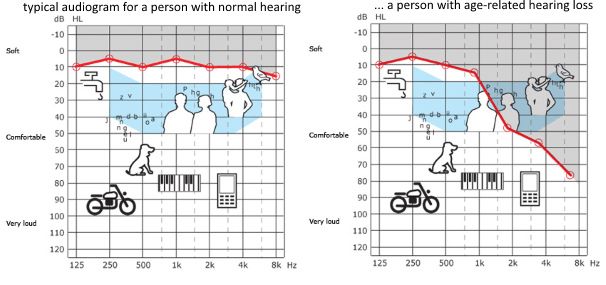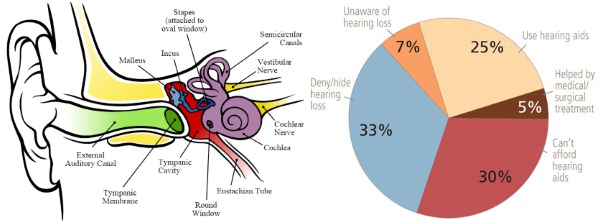Having problems with TV background music?

Ancient technology
From the large crowds that you find at places like Ephesus and Miletus, I know I am not the only one interested with the lives of the ancient Greeks. It is fascinating to know that even back in the Mycenaean era (1600-1100BC) people were building vast theatres. I find it humbling that 3,500 years ago human ingenuity was being used to construct arenas for the provision of entertainment to large crowds of people.

Something that continues today with television.
How music works
If you have seen series such as Howard Goodall's "How Music Works" you will know that music is enjoyed on many levels, such as Melody, Rhythm , Harmony and Bass.
The human condition allows us to communicate emotional states with music, and modern TV production makes great use of this. TV sounds has long since been stereo (the NICAM system in the 1980s) and HD programmes often use six-speaker "surround" sound to give a cinema-like audio experience.
Going back over 45 years to documentaries such as Civilisation: A Personal View by Kenneth Clark, music is used to communicate emotional states to mix with in-vision and overlay voices.
Can you not hear the birds singing?
If you are having problems hearing the sound on a TV programme, you may wish to consider that the problem is not the people who make the programmes!
For most viewers, the mixing of music and speed is not a problem. Quite a few people experience a form of mild hearing loss which makes it harder and harder to distinguish voice from other sounds.
This could be a temporary form, which your doctor can fix.
 Age-related hearing loss. Because hearing loss is a gradual process people are often unaware that it has happened.
Age-related hearing loss. Because hearing loss is a gradual process people are often unaware that it has happened.
The large river in Egypt? Denial
Discounting the idea that you might be a a misanthropic psychopath, some studies have shown that as many as a third of people with hearing loss are hiding it from others or themselves.
 Data from Hearing Loss Tomorrow - BrainFacts.org
Data from Hearing Loss Tomorrow - BrainFacts.org
However, for a significant minority of people, this can cause problems. Generally speaking this is more likely as people age.
UK All hearing loss: 3,721,000 Working age + 6,390,500 Retirement age = 10,111,500 Total
Can I find out now if I have hearing loss?
Yes, watch this video. Unless you have an great sound system attached to your PC, you might need to use enclosed headphones to get it work properly.
What can someone with hearing loss do?
If you have undiagnosed problems, please go and see your GP. If you live in the UK you will get free treatment, and this can include hearing aids. For the 5% of those with hearing loss who need it, you can also have certain operations.
Access to ENT (Ear Nose and Throat) Specialists at hospital is always via your GP.
For more details on what you might expect see
- Signs and symptoms - ReSound
- Age-related hearing loss: MedlinePlus Medical Encyclopedia Hearing Loss After Birth (Acquired Hearing Loss)
- Sensorineural hearing loss - Wikipedia, the free encyclopedia
Practicable things to try
- use the "tone" controls on the television set to promote the frequencies in speech (which are 85 to 255 Hz) and decrease the rest. This might be a cause of "turning down the treble".
- use the on-screen subtitles to help pick out the voice when it seems unclear.
- Also, most modern sets have an "auto audio" type facility, often on a button on the remote control that will flip though settings like "music" and "movies" and "speech". These are usually just graphic-equaliser settings, but you might find that you need to actually disable this facility.
- You boost over 1kHz to compensate for the way you hear the sound, rather then turning up the volume, which is what would seem the obvious thing to try if you can't hear.
- If a programme is broadcast in "Surround Sound" – often called 5.1 sound – you may be able to boost just the "dialogue speaker" (the one at the front centre), and even mute the left and right ones. Certainly worth trying for movies.
| When you can't quite hear the TV, subtitles are critical | 1 |
10:09 AM
We have a Panasonic TV with a sound bar. What I find a problem is the very intrusive music that accompanies many documentary and wildlife programmes, which drowns out the commentary, such that we have to turn on subtitles. The worst of these is incessant drumming which seems to accompany many BBC programmes and is exacerbated by the excellent bass response of our sound system. We do not have a problem with normal speech and music programmes. Maybe the sound 'designers' have hearing problems at the bottom end?
I suppose that we could revert to the tinny sound of the speakers in the TV!
| link to this comment |
2:14 PM
I use my surround sound system with decent speakers. I do find that on wildlife shows that the music drowns out the speech. also on ITV or stations shows adverts can be blaring loud have to turn the sound down then back up for the tv show.... so annoying....also i am deaf in both ears and use subtitles but offten the subs dont match up with the sounds
| link to this comment |
8:52 PM
MikeP: To be fair, a Bose sound system retails around £350 - which is almost the cost of a decent 42in TV!
While a cynic might conclude that making the sound poor allows a brand to sell a soundbar as well, the fact that there has been little change in the speakers used since flat panels first came in points to a bigger problem.
TV's can now have larger screens, and can be much thinner. We now like to put them on the wall, etc. So manufacturers have to chose what we consumers desire most, and what we are willing to pay for.
We want a decent picture, and a design which looks neat, even minimalist. Yes, you might want fantastic sound, but you cant have everything, unless you are willing to pay the sort of money that gets you a B & O, Lowe, etc. And since they use third party panels anyway, you could argue that the picture quality isn't going to be vastly different (and even if you bought I high end soundsystem you might still come out with change) or you could have a design like the Sony 9005 4K, with twin speakers systems on the side (and lovely they are too).
However, thats not a cheap TV, and frankly, people buy with their eyes. There is a reason why we dont sell 5.1 sound systems any more - customers dont like the clutter.
You could have a fantastic sounding TV, but if it big, bulky and a bit clunky, people are not going to buy it. They will love something thats minimalist, silvery, and has very little surround. Sony have opened out the bottom part of their TV's to get slightly more volume for their speakers (although its more of a pain to put on the wall), but I'm not convinced its made a huge amount of difference.
LG have made big TV's for us this year which have a decent 60w soundbar as part of the stand, but you really have a problem finding a place to put decent speakers in a modern TV. And if you could, they would either look a bit clunky, or be very expensive, which means we would probably not buy it.
Life is the art of the possible....and the use of intrusive music in programmes is another thing entirely!
| link to this comment |
11:19 PM
I love music and enjoy listening to big band & jazz.
When I switch to say, the news, I want to hear what is said. What possible excuse can there be to make the speech more difficult to hear by adding MUSICK.
Certainly there is enough drama in the stories without adding artificial effects Why is it always necessary to add MUSICK to the headlines. What is the cost of this addition?
| link to this comment |
11:29 PM
I am in total agreement with Robert lee regarding so called background music on documentaries. It is usually un necessary and drowns out the presenter's commentary. Not only that, whoever choses the music is either tone deaf or obsessed with drums. Cut it out BBC. If watchers want documentaries, it's because they're interested in the subject. If they want music there are plenty of music programs on the TV and Radio!
| link to this comment |
11:32 PM
I see comments about using forms of tone control. This can help but most TVs do not have those facilities and with those that do it can be a complicated visit to the sound menu.
I find that reducing the low frquencies can improve speech clarity while a reduction of treble frequencies makes the sound muffled.
| link to this comment |
11:42 AM
If you have a Dolby surround system, try increasing the level of the centre channel because, for most mixes, it is this channel that conveys the majority of the dialogue. A great deal of TV drama mixing seems to be 'inspired' by cinematic mixing styles, where a large auditorium, screen, and a wide audio dynamic range work very impressively. However, it is my opinion that this often translates poorly when experienced in the living room! Arty, yes, but intelligibility would be preferable for domestic purposes.
| link to this comment |
12:24 PM
Why do producers think 'background' music or sound effects necessarily enhance a programme in which the live speech or commentary is an essential component? It is apparently (BBC anyway) partly driven by the desire of those employed to provide it to justify their jobs, but why doesn't the programme maker hold the power of decision as to what if anything is desirable? Background muzak in shops etc is similarly annoying, not least to staff, inc managers, who apparently have no choice of what if anything to play.
| link to this comment |
1:30 PM
MikeB: Why don't manufacturers provide extension speaker sockets? This would solve the poor quality sound problem for many viewers.
| link to this comment |
